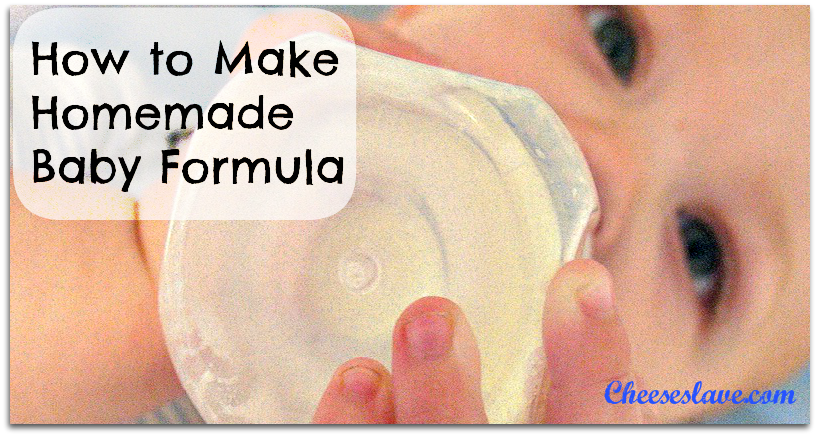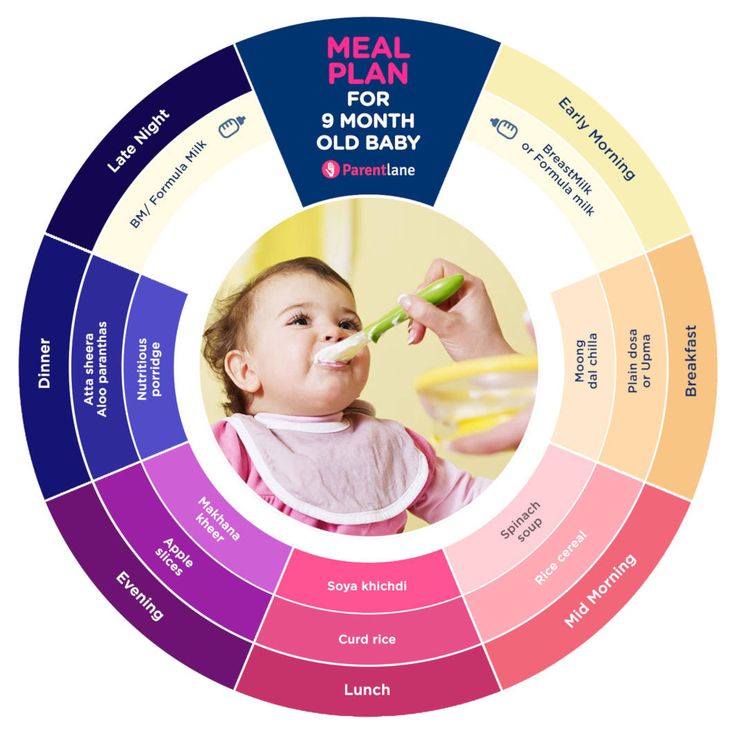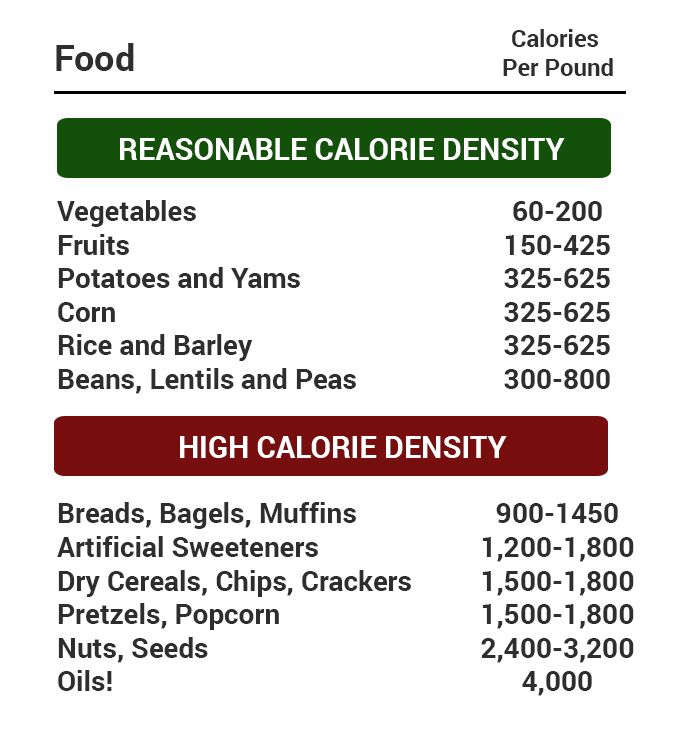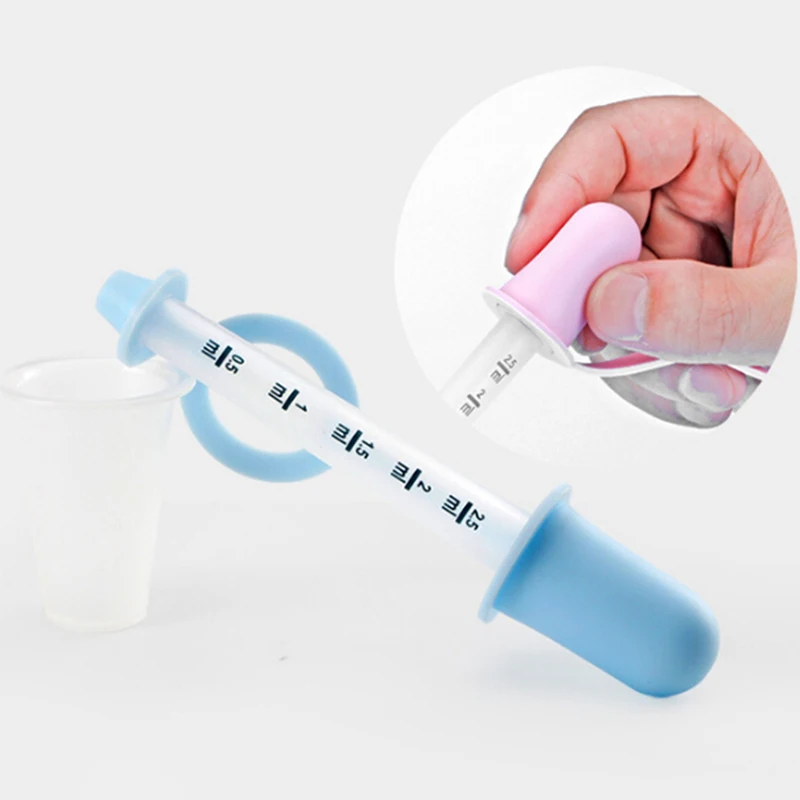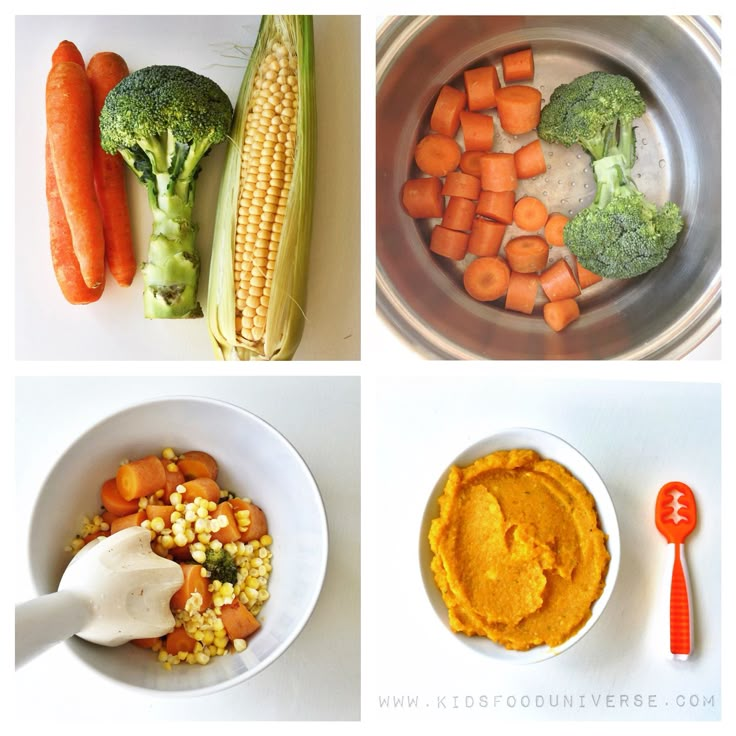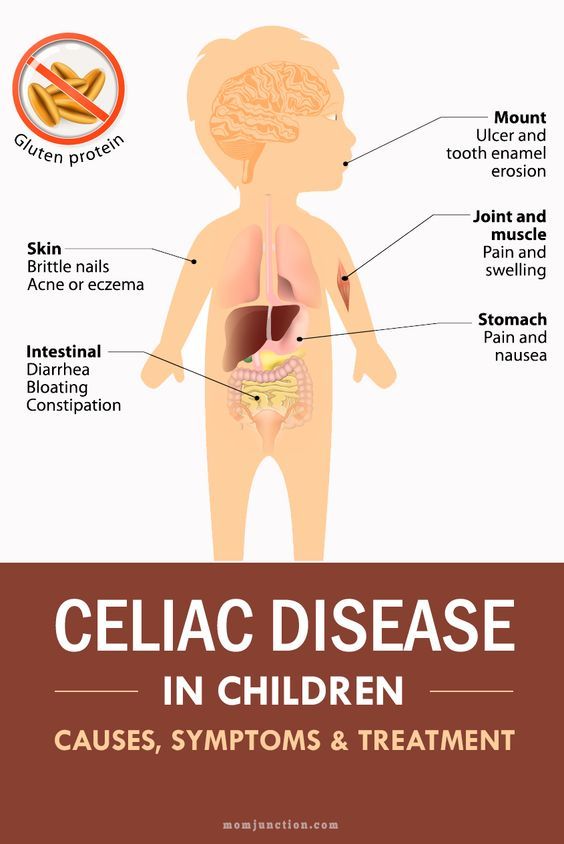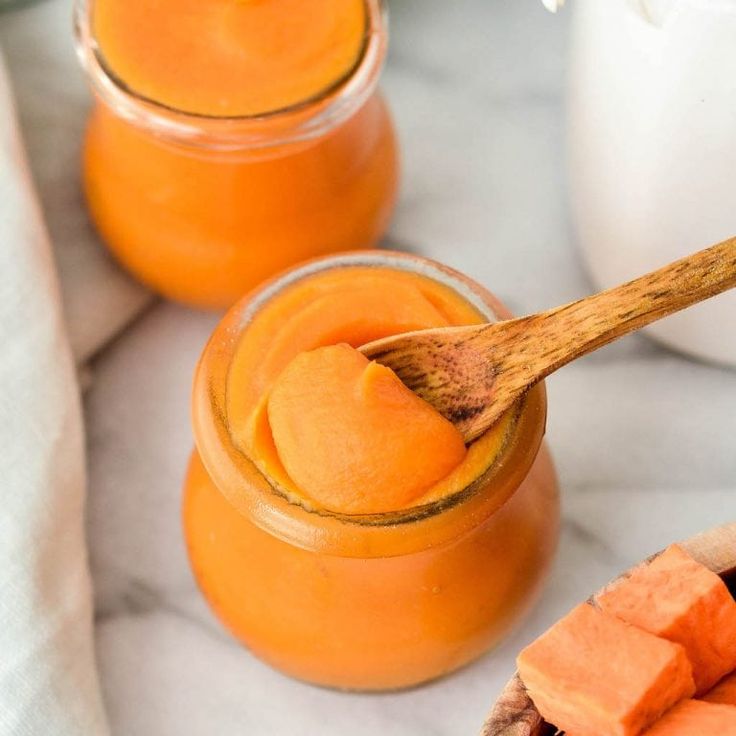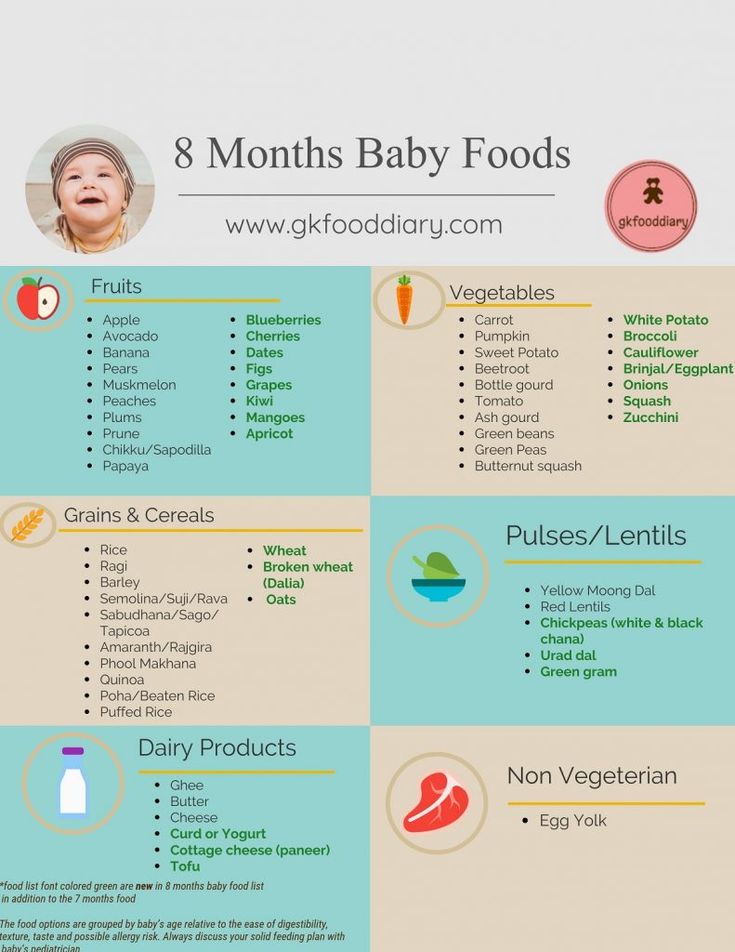Is homemade baby food better than store bought
Your Baby’s Food: Homemade or Store Bought?
Making your own baby food is a very personal decision many mothers think about. It is not always an easy choice because there are a lot of factors such as lifestyle, cost, benefits and risks that go into it. As my best friend put it,
“There is something really gratifying and pure about making Henri’s food. Since it is made by me, I know exactly what goes in his tummy. And of course, I have to taste it, making me more aware of the flavors my child does and does not like.”
What is Most Important: Experts Weigh In
According to the United States Department of Agriculture (USDA), the most important concern surrounding the decision of what to feed your child is to provide an “adequate amount of essential nutrients by consuming appropriate quantities and types of food.”
Essential Nutrients for Babies
Some important essential nutrients for your baby include protein, healthy fats, iron, vitamins D, A and B12. As long as your child receives important nutrients, whether it’s from homemade baby food or store bought, you are providing your baby with the building blocks for their future growth and development. I found this guide from USDA.gov helpful in learning about the nutritional needs of my baby. I think you will to!
Year One
Many of you may be breastfeeding. The American Academy of Pediatrics (AAP) recommends exclusive breastfeeding for the first six months of age. During this time, the sole form of nutrition should be breast milk. After six months of age, complimentary foods may be introduced into your baby’s diet. This may be in the form of rice, cereal, vegetables and fruit. These are some of many nutrient based complimentary foods AAP recommends in your baby’s diet.
When your baby is at least six months and ready to begin eating solid food, your question may be, “Should I make my own baby food or buy it from the store?” The rest of this blog post helps answer your question!
Should You Consider Making Your Baby’s Own Food?
The benefit of making your own baby food is knowing exactly what your baby is eating with no worry of extra “surprise” ingredients.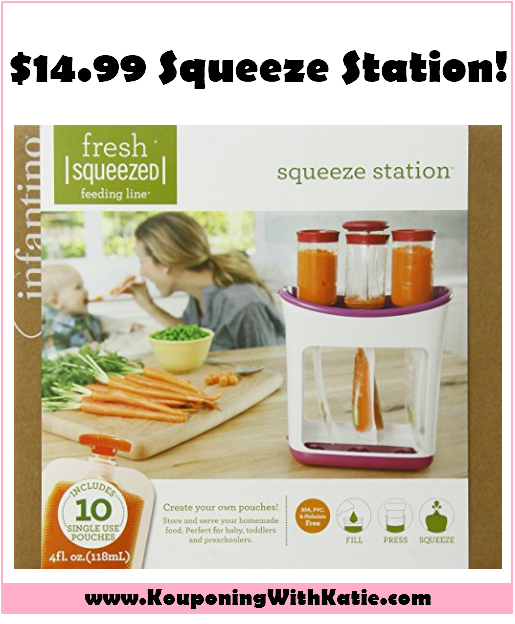 Here are tips to consider when making your own baby food:
Here are tips to consider when making your own baby food:
- ALWAYS follow strict food safety rules for preparing and storing homemade baby foods. Refer to this easy guide from FoodSafety.gov for details on baby food preparation and storing safety.
- Wash fresh produce thoroughly.
- Use fresh fruits and vegetables as much as possible. Prepare fresh produce shortly after purchasing in order to preserve the nutrients.
- Remove peels, cores and seeds in any produce.
- Remove skin and trim all visible fat from meats.
- Cook meats by baking, broiling or stewing.
- For younger infants, puree meat in a blender to desired consistency by adding a small amount of fluid. For older infants, chop meat and poultry into very small pieces.
- Avoid using canned fruits and vegetables with added salt or sugar.
- Serve food plain. Do NOT add seasoning and spices to your baby’s food.
- To adjust flavors add other pureed foods that your baby has already eaten.

- Never incorporate foods that your child has never eaten. There may be a food allergy you are not aware of.
- Introduce new foods one at a time in order to make sure there is no food allergy connected with a particular food.
- Avoid adding eggs or dairy before age one. Dairy and eggs at such a young age can cause a food allergy.
- Homemade food kept in the refrigerator should be eaten within 48 hours after preparing.
- If you are making large batches, freeze in BPA-free containers with proper lids. Label and date all containers.
Are There Ingredients to Avoid in Store Bought Baby Food?
Actually, no there is not. In my research for this post, there aren’t ingredients to avoid in store bought baby food, but there are additives to avoid. Make sure there is no corn syrup and sugars added. Generally, baby food has fewer additives that other food. Purchase foods that have only fruits and/or vegetables and water added. Many families lean towards organic brands because they know the food is free of pesticides, growth hormones, antibiotics and other chemicals.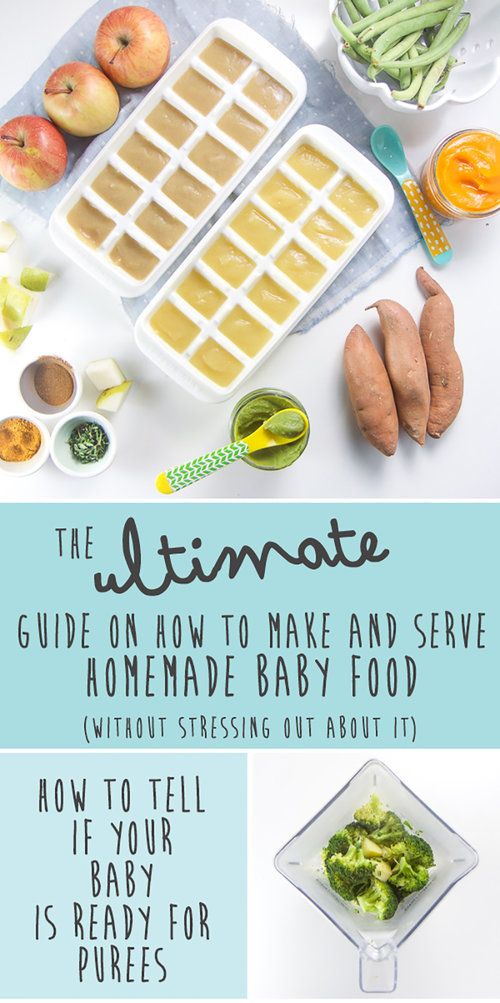 If the cost of organic brands is too high, read the labels and make sure there are no additives like corn syrup, sugars or other ingredients that are not real food or food-based.
If the cost of organic brands is too high, read the labels and make sure there are no additives like corn syrup, sugars or other ingredients that are not real food or food-based.
There are Benefits to Store Bought Baby Food
The biggest benefit is convenience! I cannot say it enough. It requires less careful preparation and cleaning, less pureeing, less freezing and less waste. Baby food manufacturers are constantly creating new products, which allows for easier and lighter carrying. Companies have started packaging their foods in pouches, which are easier to carry than glass jars. Also, many companies package their baby foods in ways that are designed to help parents advance their baby’s diet at the right age.
At the end of the day, the decision to make your own baby food or buy food for your baby is a decision that needs to fit into your lifestyle. As long as you are providing your child with a healthy well-rounded diet, you really cannot go wrong.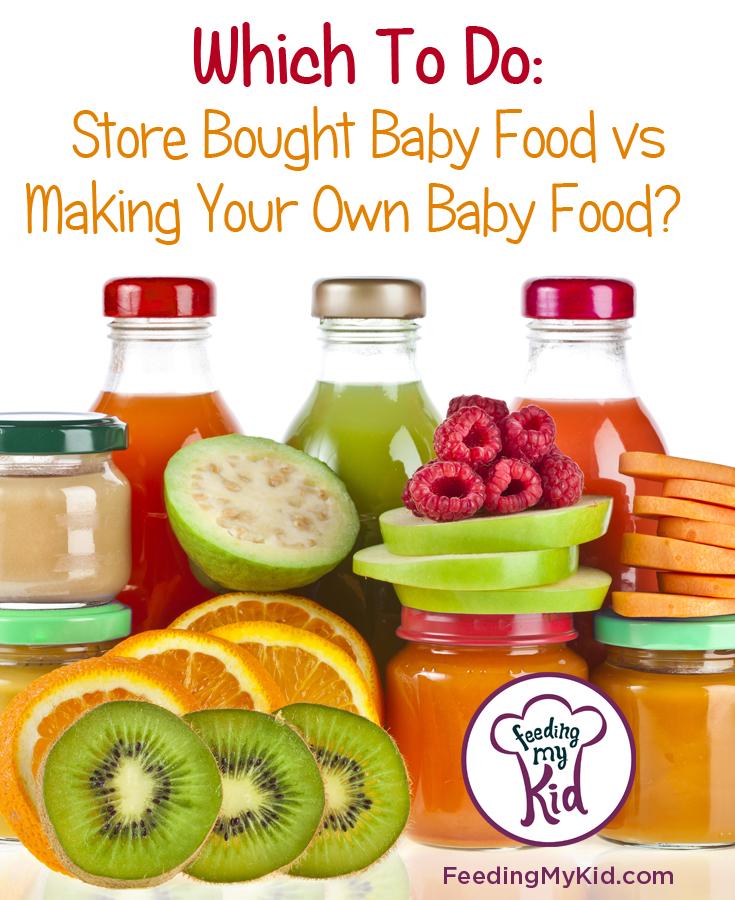
Bought vs Homemade Baby Food – Pros and Cons – Aster & Oak
Baby food is almost as varied and flavorful as adult food now — anything that can be pureed can be put in a jar and called baby food. Once our little one has reached the food stage at around six months, it’s time to make a decision. Should you buy your baby food or make it at home? We’ve assembled the pros and cons of each option to help make the choice between Bought vs Homemade Baby Food a bit easier for you.
Store Bought Baby Food — Pros and Cons
Store-bought baby food may be the food of choice for most parents because of its convenience and variety — there’s an enormous wall of it in nearly every grocery store, and it comes in every flavor imaginable.
Pros
- Convenience — You don’t have to worry about refrigeration (before you open the jar) or Tupperware with loose lids making a mess in your bag.
- Portability — It’s easy to store and carry jars of baby food in your diaper bag or purse.
 All you need is a spoon, and it’s dinner time for baby.
All you need is a spoon, and it’s dinner time for baby.
Cons
- Cost — In the long run, jarred baby food ends up costing more than the homemade alternatives.
- Waste — Disposable packaging can be wasteful, and if it’s not cleaned out well, it’s often not recyclable either.
- Preservatives — The only ‘preservative’ you should see in baby food is Vitamin C, but jarred food can contain a variety of listed or unlisted preservatives to make the food shelf stable.
- Contaminants — Contaminants can make their way into store-bought baby foods and can even show up in the water used to make it. In 2014, the Environmental Defense Fund found lead in some packaged baby foods.
Jarred baby food can be a great tool if you’re traveling or away from home, but is it really the best option for every meal?
Homemade Baby Food — Pros and Cons
You can make almost anything that you’re eating into baby food as long as you don’t mind skipping the salt and other seasonings.
Pros
- You Know What’s in the Food — Nothing goes into your homemade baby food that you’re not aware of.
- Cost — Overall, making your baby food ends up being less expensive, even if you have to buy a blender or food processor to get started.
- Variety — You can make up food combinations to cater to your infant’s tastes and nutritional needs without having to open multiple jars.
Cons
- Safety — Jarred baby food is pasteurized, killing off any bacteria that might appear in the finished product. Homemade baby food is not.
- Storage — Homemade baby food has no preservatives, so it doesn’t keep as well. It can be frozen, but should only be made and stored in small batches.
If you’ve got the time and the inclination, making your baby food can be an excellent option for providing your infant with healthy and organic food.
Making Your Own — Tips and Tricks
If you’ve never tried making your own baby food, here are a few tips and tricks to get you started:
- Steam or microwave fruits and veggies to soften them while still retaining most of their nutrients.
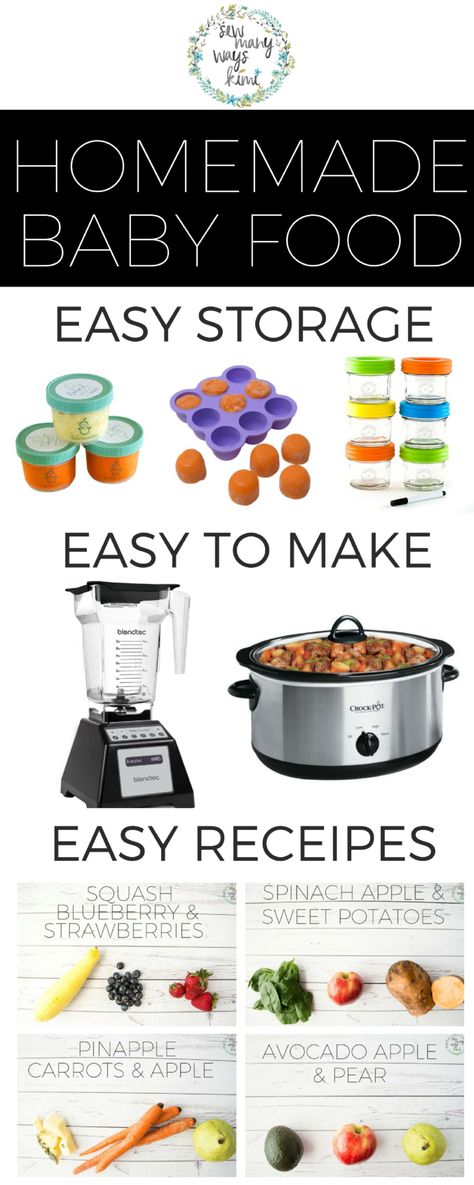 Boiling works too, but many of the nutrients can leach out into the cooking water.
Boiling works too, but many of the nutrients can leach out into the cooking water. - Don’t add anything — you don’t need any extra flavors or additives. Your baby’s tastes are very bland at the moment, plus most of these flavor additives also add salt or sugar which are unhealthy for your baby.
- Mash. Add small amounts of water or breast milk and mash the fruits or vegetables until they’re smooth. You can also spin these foods up in a blender or food processor to get a smooth, even texture.
That’s all there is too it. Baby food is pretty simple. If you’re making up large batches of food at once for convenience, pour the extra food into an ice cube tray to make individual sized freezer portions. Once frozen, they can be transferred into a zip lock bag for storage for up to a month.
Homemade Baby Food Recipes
If you’re just getting started with baby food, here are a few homemade recipes to get you going.
Stage 1 — These infant foods should include only one ingredient, not including the water or breast milk used to dilute the mash.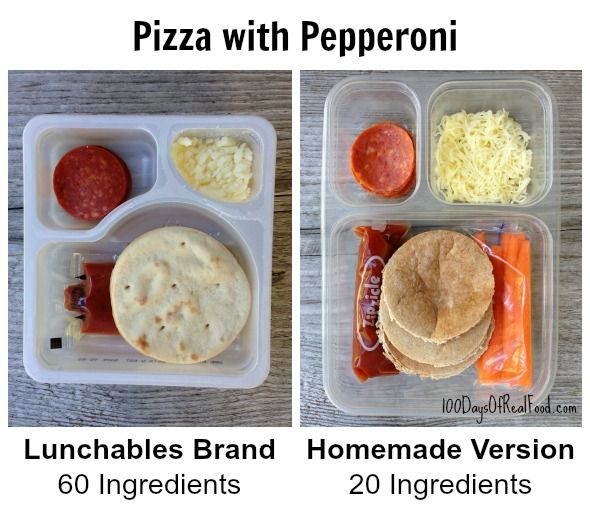 Not only does it make it easier to introduce new foods to the baby, but it also makes it easier to determine if your child has any food allergies that you need to be concerned about.
Not only does it make it easier to introduce new foods to the baby, but it also makes it easier to determine if your child has any food allergies that you need to be concerned about.
Avocado Mush — All you need to do is halve your avocado, scoop out the meat of the fruit and mash it until smooth. Avocados are very soft anyway, so there’s no need to do anything extra to it.
Banana Mush — Same as the avocado. Peel, mash, serve.
Applesauce — Peel your apples and cut them into chunks. Boil or steam until tender, then mash or blend until smooth.
Stage 2 — This is when you can start getting a little more adventurous with the food combinations, but you still don’t want to add any salt or additional flavors. Start combining fruits and vegetables like:
- Apples and bananas
- Apples and plums
- Bananas and blueberries
- Apples and carrots
- Peaches and sweet potatoes
- Avocado and peaches
The list is endless.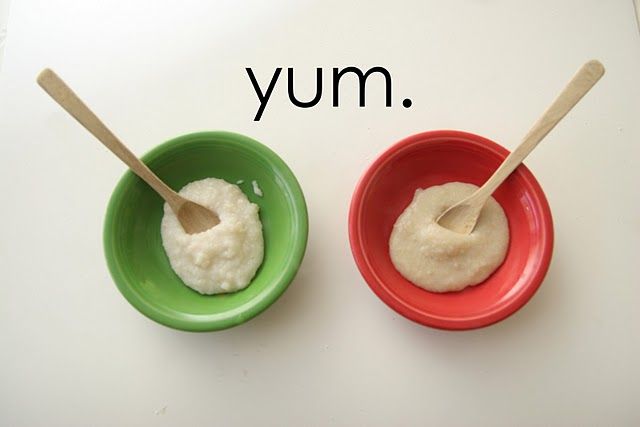 Just make sure you’re using foods that you’ve already introduced the baby to in case of food allergies.
Just make sure you’re using foods that you’ve already introduced the baby to in case of food allergies.
Stage 3 — Now that your baby is used to a variety of different foods, it’s time to start looking into chunkier foods. You can start introducing finger foods here as well.
The food you feed your baby, much like the rest of your parenting decisions, is a personal choice. If you have the time, making homemade food can be a healthier alternative to store-bought baby food, but the jarred stuff isn’t all bad.
90,000 store-bought or homemade baby puree? – ROCROSWhen it's time to introduce complementary foods to a baby (4-6 months), any mother faces a choice: buy mashed potatoes for babies, or cook them herself. Deciding is not so easy, because both there and here have their pros and cons.
Store-bought baby puree
Supermarket shelves now offer a huge variety of purees for all tastes, all of which are rigorously tested for compliance with hygiene standards. In other words, store-bought purees are absolutely safe and will only benefit your baby. Here are some more pros:
In other words, store-bought purees are absolutely safe and will only benefit your baby. Here are some more pros:
- buying food in jars, you don't waste time cooking;
- canned purees are conveniently warmed up in a warmer;
- By the way, purchased purees are available not only in jars, but also in soft packaging - you can take such food with you on the road or for a walk. It is not necessary to warm it up - basically, these are fruit or fruit and vegetable purees;
- store-bought mashed potatoes can be not only vegetable, meat, fruit, but also mixed - for example, apple with pear, potato with zucchini, vegetables with veal, etc. This option is perfect for a grown-up baby. nine0010
However, store-bought food has its drawbacks: if you use it every day, it "flies a pretty penny."
Homemade baby puree
As for homemade baby food, of course, it also has supporters. First, it's a big savings.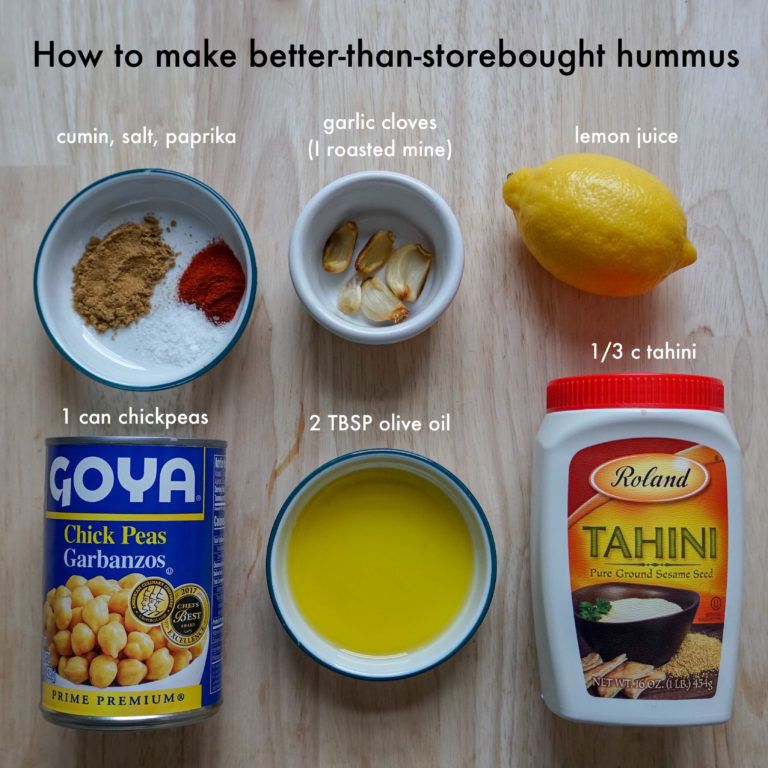 Secondly, what could be better for a baby than food prepared by caring mother's hands? However, there is an important note to be made here.
Secondly, what could be better for a baby than food prepared by caring mother's hands? However, there is an important note to be made here.
Baby food - be careful!
It's one thing if you use vegetables and fruits from your garden for puree. Then you know for sure that they do not contain any pesticides and other harmful substances. nine0003
But if you buy the same vegetables in a store or on the market, then, alas, you can not always be sure of their origin - and, consequently, of their benefits for the child. For example, it is unlikely that fruits from South America that have lain on the store shelf for a week have retained such an attractive appearance without the miracles of chemical engineering. And even more so, you don’t know where that pretty grandmother from the market got her zucchini from.
How is your time?
Let's assume that you are sure about the origin of the food on your table. You can cook baby puree! But there is another downside: it takes time. First you have to boil vegetables or fruits, then chop them in a blender. However, this is fixable: modern devices will come to the aid of the mother, for example, a very easy-to-use steamer-blender. nine0003
First you have to boil vegetables or fruits, then chop them in a blender. However, this is fixable: modern devices will come to the aid of the mother, for example, a very easy-to-use steamer-blender. nine0003
And yet: cook or buy baby food?
So what do you prefer: canned or homemade baby food? Better to have both on hand. If you have a lot of household chores, the baby urgently needs attention, or you are going to go somewhere with him, then, you see, it’s good when there are several jars of baby food in stock.
And if you have a limited budget (after all, the baby needs not only mashed potatoes, but also many other things), then, of course, from time to time you will have to cook yourself. The main thing is that the food on your child's plate is tasty and healthy. nine0003
Baby food - from a jar or do-it-yourself? Pros and cons
Complementary foods are solid foods for young children in addition to dairy products that they have received for several months as their sole source of nutrition.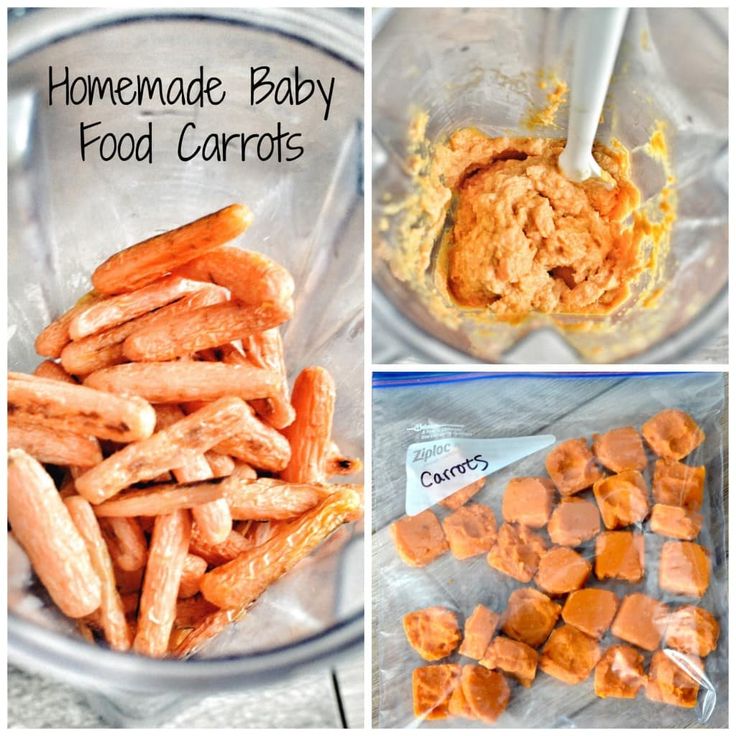
— Polina Alexandrovna, why is the introduction of complementary foods called a transitional stage in a child's nutrition?
— The beginning of acquaintance with complementary foods does not mean the transition to an adult diet. The first or second complementary foods are important so that the child adapts and is psychologically ready to eat adult food, and his digestive organs are tuned to work properly. Therefore, complementary foods are considered a transitional stage from milk nutrition to nutrition at a common table. nine0003
- Does the composition of the canned zucchini or apple puree for babies differ from the homemade version?
- Factory nutrition may vary depending on the raw materials that the manufacturer uses in a particular puree. Therefore, it is impossible to say that all such food is the same. For example, zucchini puree may contain rice flour so that its consistency is more correct in the opinion of the manufacturer.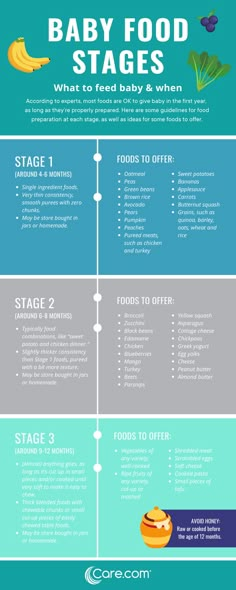 Mom decides what to put in, and in the same way she can add rice flour. An industrial puree that is suitable for a child and meets the requirements of parents may be identical in composition to homemade puree. nine0003
Mom decides what to put in, and in the same way she can add rice flour. An industrial puree that is suitable for a child and meets the requirements of parents may be identical in composition to homemade puree. nine0003
— There is a lot of speculation about baby food in jars. What are the most common parenting misconceptions?
- The most common myth is "canned puree doesn't taste good and kids don't eat it well." In fact, most babies enjoy eating factory-made purees without experiencing any problems.
There are concerns that baby puree is “wrong” or does not meet nutritional requirements. The manufacturer is required by law to list all the ingredients of the product. For example, mashed potatoes may contain rice flour that is not always healthy, especially if vegetables are introduced to the child in order to avoid constipation. What kind of food is more useful for the baby, whether to buy just such a puree or look for another in composition - the parents decide together with the doctor.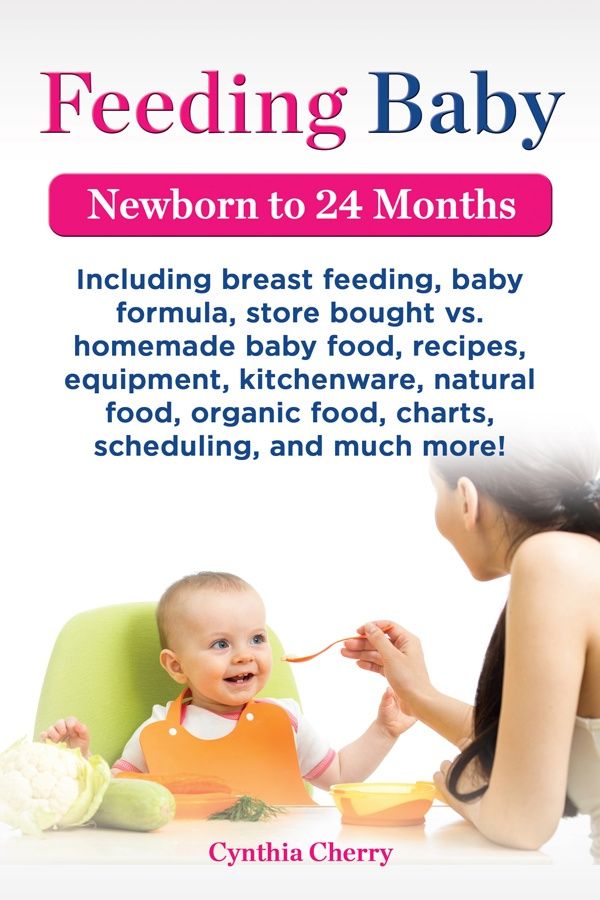 Therefore, it is wrong to equate all manufacturers and their products. nine0003
Therefore, it is wrong to equate all manufacturers and their products. nine0003
See also
- "10 myths about canned baby food"
- Puree is often said to contain preservatives.
— Modern technologies make it possible not to use preservatives in the production of baby food. That is why it is written on the jars that open food is not stored for more than a day even in the refrigerator. As long as puree does not come into contact with air, it does not spoil within the specified shelf life due to sterilization and vacuum packaging. After opening the jar and contact with air, the puree quickly deteriorates, which indicates the absence of preservatives in it. nine0003
— Is it true that canned baby food is addictive, and then the child refuses natural products?
- There is no causal relationship here. When a child refuses a fresh apple, the problem is not the canned puree in his diet, but that he is not familiar with food in pieces. The child ate a homogeneous puree for a long time, and then they offer him a large piece of an apple - naturally, he will not cope with it right away. That is why, after the child gets used to a homogeneous puree, puree with soft small pieces is gradually introduced - so that there is no discomfort if the baby does not chew them. Gradually, the pieces become larger and denser. Over time, the child comes to eat a real whole apple or other hard fruit or vegetable. nine0003
The child ate a homogeneous puree for a long time, and then they offer him a large piece of an apple - naturally, he will not cope with it right away. That is why, after the child gets used to a homogeneous puree, puree with soft small pieces is gradually introduced - so that there is no discomfort if the baby does not chew them. Gradually, the pieces become larger and denser. Over time, the child comes to eat a real whole apple or other hard fruit or vegetable. nine0003
Baby food in a jar or homemade puree - which is right for a baby? Pros and cons of
— How long can I feed my baby bottled baby food?
- You can feed your baby as much as you like, there is no strict age limit. But child needs to be introduced to different textures and flavors . The need for canned food usually disappears when the baby moves to a common table with a diet familiar to the whole family. During this period, puree from a jar, especially tasty and sweet fruit varieties, often becomes a safe treat for grown-up babies. nine0003
nine0003
— In which cases canned baby puree is contraindicated?
- There are no diseases in which canned puree is contraindicated. But for some diseases, the presence of a particular product in baby food is undesirable. Factory puree is different in composition. Parents can choose purees without ingredients that are not suitable for the baby or should be limited in his diet, and continue to feed the canned product without problems.
— How to choose baby food in a jar that is healthy for a child? nine0052
- First of all, you need to read the full composition of the product on the back, because some ingredients are not indicated on the front label of the jar. It is important to pay attention to the expiration date of the food, the reputation of the manufacturer. All components of the puree must correspond to the age and condition of the child, his individual characteristics.
For example:
- the first puree must not contain rice flour;
- Strawberry puree should not be given to a four-month-old child; nine0010
- cereals are excluded from the diet of children with celiac disease (gluten intolerance);
- An older baby should be offered puree with chunks.
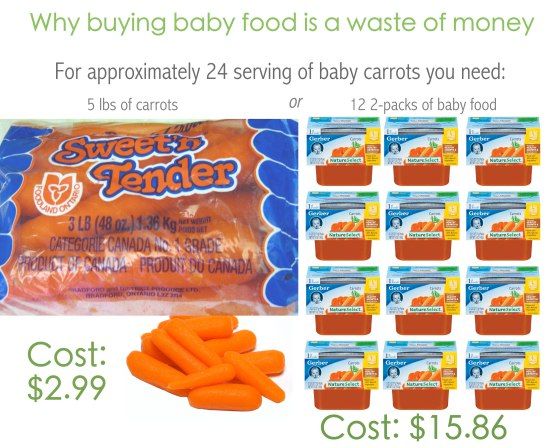
What mistakes do parents make when preparing mashed potatoes for feeding with their own hands
- Sometimes parents cook the wrong way - sometimes they overcook vegetables, and also make the puree too thin or thick. I hope that no one will fry food for their young children instead of boiling or steaming. Sometimes parents put spices and salt in baby puree, which is also not worth doing. The child should initially get acquainted with pure tastes, and extraneous additives are useless. nine0003
In addition, mothers need to be guided by foods that are appropriate for the age of the child, do not cause allergies and are not difficult for him, and also be guided by what the family eats. If parents give the baby something that they themselves do not eat, then when switching to an adult table, he may refuse the usual family food, he will have to cook it separately. This will be a big problem.
- The child refuses the food prepared by the mother and does not eat anything. What to do in such a situation? nine0052
What to do in such a situation? nine0052
— The same food or dish can be offered to the child during the week. Food selectivity in children often depends on taste sensations, but a child may refuse to eat for other reasons, for example, when he is not hungry or would like to play instead of dinner. If during the week the child does not perceive the product that the mother offers, perhaps he still does not like it. In this case, the same product can be given in the form of canned food . Often, kids really refuse homemade puree, preferring the factory version. Again, mom can cook another product and give, for example, broccoli instead of zucchini, which the child will appreciate. nine0003
Fruit puree MAMAKO ® contains 20% goat curd. This food option is convenient at the stage of introducing children not only to fruits, but also to dairy products. It is the little ones who eat sweet, tasty foods well during the first feeding period and even when they get older - for dessert.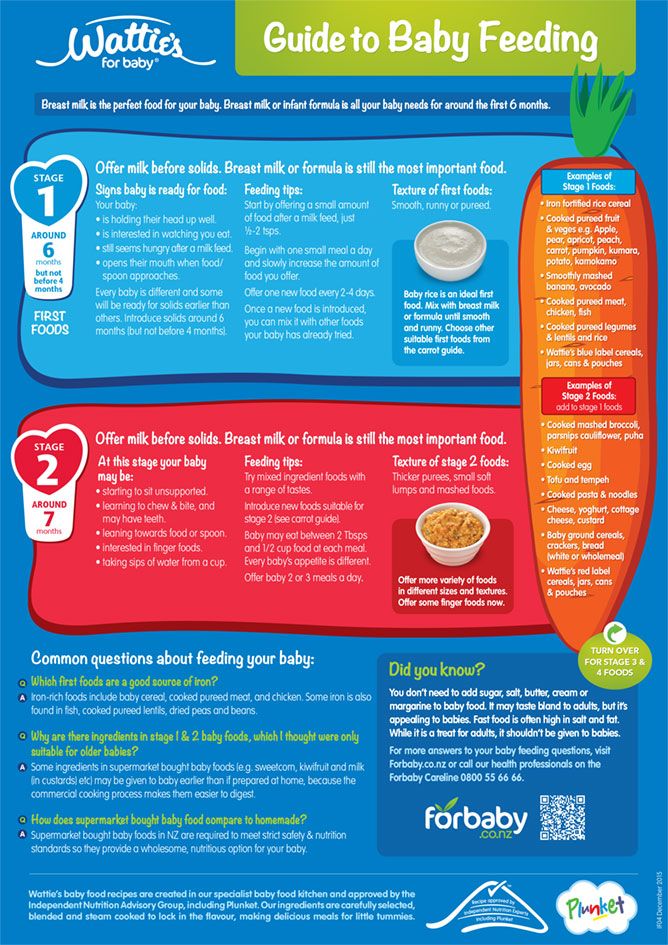
— Are the recipes for complementary foods from 6 months and those for 10 months different?
- For toddlers, no recipes or complex meals, because it is a simple food for discovering pure flavors without salt and spices, gradually getting used to the texture of the products. In the preparation of the first children's dishes, you can vary the combination of vegetables, focusing on the taste of the baby. nine0003
Recipes appear from the age of two or three with a full transition to the common table, when family preferences become more important. Of course, the baby needs to be introduced to products that are not consumed in the family, because there is a kindergarten and a school ahead. However, the basis of his diet should be food from the common household table . In addition, parents should be careful in cooking: do not overcook foods, do not add artificial ingredients, properly cool food so that homemade vegetable or fruit puree for the first feeding is healthy and safe for the baby. nine0003
nine0003
- Is it possible to combine canned and homemade food and in what proportions?
— There are no strict rules: what is convenient for the family is chosen. For example, it is difficult to make meat puree at home, so sometimes parents add industrial meat supplements to homemade vegetable puree.
There is also no clear gradation in the percentage of different food options. In one plate, you can mix what you have prepared yourself with what you bought in the store. But at home it is not always possible to achieve the desired combinations and prepare, for example, a combined product that includes a variety of fruits and cottage cheese. nine0003
Choose a way of eating that is comfortable for your family. It is easier for someone to cook for their child on their own, for someone it is easier to buy ready-made mashed potatoes. Pediatricians often recommend mashed vegetables or fruits of industrial production, because when it is used for a child, the risk of undesirable consequences is much less.